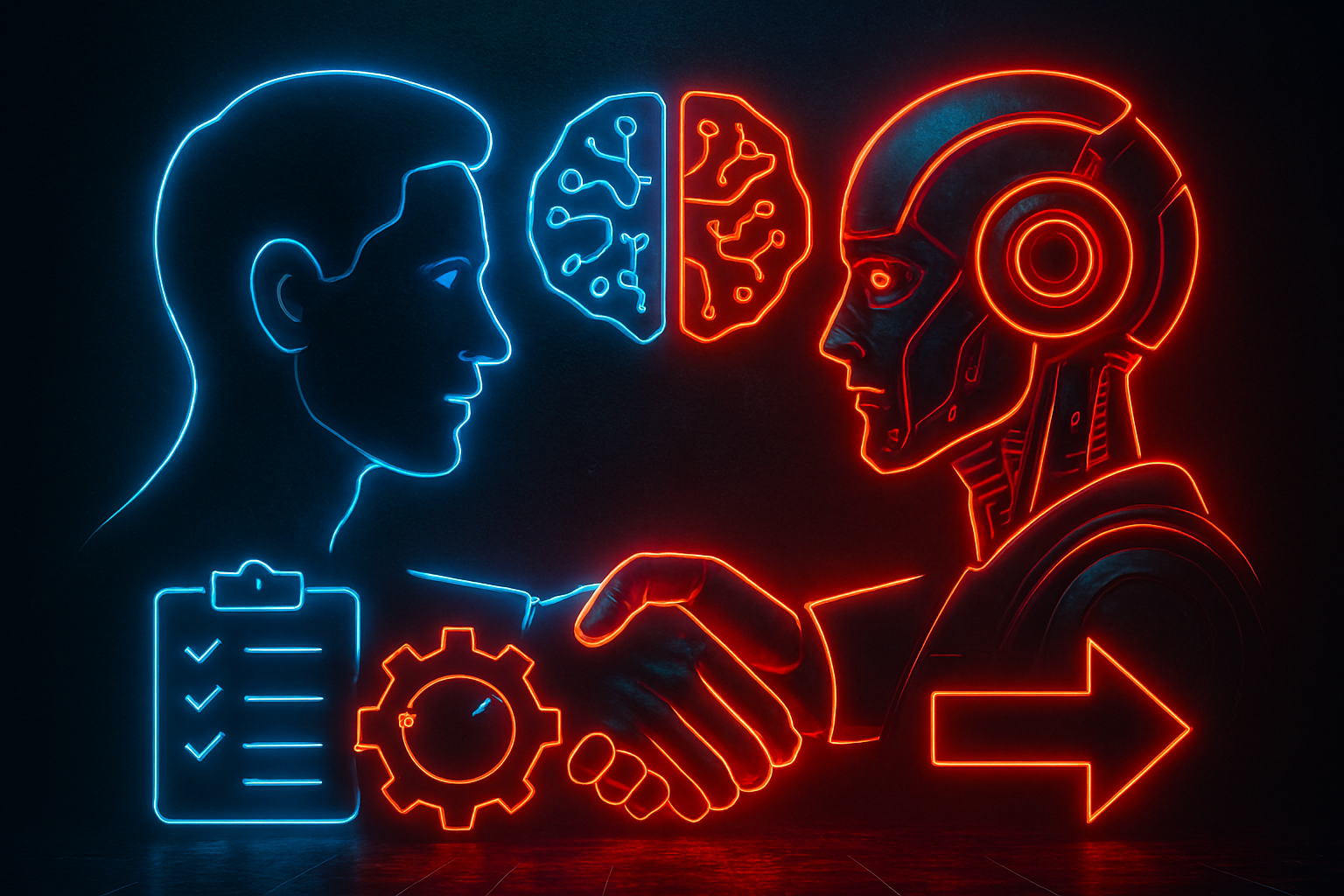The big question on everyone's mind is whether AI will make us obsolete. But the more we see it in action, the less it looks like a replacement and more like a promotion. This isn't about humans versus machines; it's about a powerful partnership where we're freed up to do what we do best: be creative, think critically, and come up with the next big idea.
Think of AI as the ultimate engine for grunt work. Its ability to handle repetitive, data-heavy tasks is incredible. Modern AI systems can systematically crawl the web, harvest data from countless sources, and process a volume of information a human team couldn't manage in a lifetime. By handing off that kind of heavy lifting, we get to focus on the higher-level thinking that truly drives progress.
The Human Promotion: From Task-Doer to Architect
This new partnership elevates the human role, shifting our focus from simple execution to the strategic and ethical application of technology. Instead of just doing the work, we become the architects of what comes next.
We get to architect the future. Take strategic foresight, for example. An AI engine can scan the cultural and technological horizon for faint signals and emerging trends, but it takes a human touch to weave that raw data into a compelling story. It's our job to apply meaning, define the "why," and transform that insight into a real-world strategy. This is where agile, strategic thinking becomes our most valuable skill.
Our creative mastery gets amplified. In creative fields, AI acts as a tireless, infinitely skilled apprentice. Advanced AI art tools can generate thousands of concepts in minutes, giving a human artist a massive sandbox to play in. The AI provides the raw material; the artist provides the vision, taste, and that unique spark of human experience. It lets designers focus on the big picture and musicians explore melodies they might have never found on their own.
We can engineer a better human experience. This teamwork even extends to the human side of business. AI can analyze communication patterns to predict burnout or identify sources of friction that hurt performance. The goal isn't surveillance; it's about giving leaders the insights they need to build resilient teams, cultivate a culture of well-being, and create an environment where people can truly thrive.
The Guardians of a New Frontier
Now, this isn't a perfect fairy tale. People are right to worry about how automation will affect jobs, and we need to be smart about adapting. There are also very real ethical hurdles to clear—from biased algorithms to a lack of transparency in how AI makes decisions. This is precisely why the human role is more important than ever.
It falls to us to be the guardians of this powerful technology. We are the ones who must ensure transparency, address bias, and build the frameworks that keep AI aligned with our values. It's a huge responsibility, but it's one that puts human judgment right at the center of this new world.
So, is AI the end of human ingenuity? Not a chance. It's the end of drudgery. It's a tool that empowers us to double down on what makes us unique—our creativity, our strategic thinking, and our ability to solve problems that don't have easy answers. Instead of replacing us, this partnership is poised to make us collectively smarter and open up a whole new world of possibilities.
 ← Back to Articles
← Back to Articles
